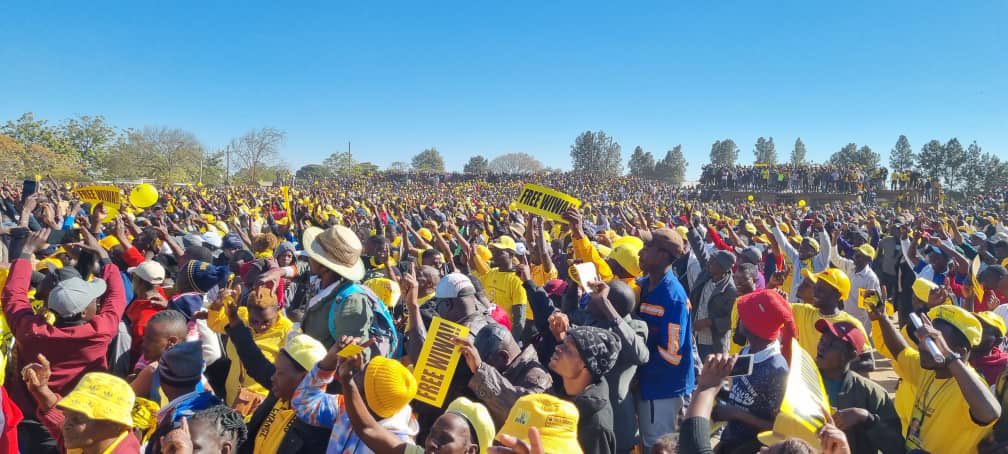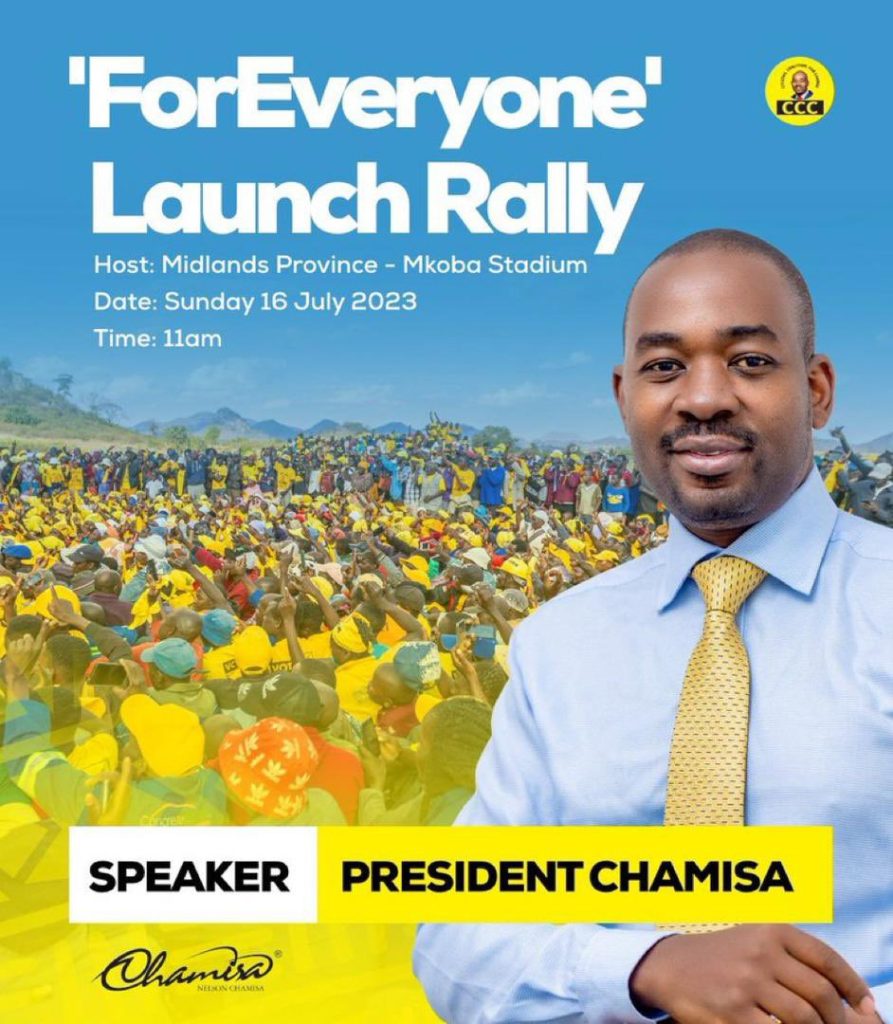
Zimbabwe’s main opposition party, the Citizens Coalition for Change (CCC) officially launched it’ s campaign trail on Sunday 16 July 2023 with a rally held at Mkoba Stadium, a city in the central province of the country, about 300km south-west of the capital Harare.
Dubbed “ForEveryone”, the rally managed to register a bumper crowd as supporters braved the nippy weather which has been prevailing in the country as winter temperatures hit their lowest.
The launch was a second attempt, as the first launch rally was thwarted by the authorities a week before, citing venue ‘inappropriateness” among other issues.
Standing on a stage decked with a nest of yellow balloons, the CCC’s colour, the opposition party’s president, Nelson Chamisa (45) wooed the crowd with promises of prosperity and dignity “for everyone”. He also promised full dollarization of the economy once in power, increase civil servants’ salaries and issue title deeds to landholders, much to the roaring cheers of the crowd.
An ordained pastor, Chamisa made Biblical references throughout his speech.
“I’m coming armed with a stone. Goliath will be slain with a stone”, he said comparing himself to the Biblical David who fought and defeated the giant Philistine warrior, Goliath, with a sling.
However, the opposition party failed to avail its manifesto at the launch, as was anticipated by many. Chamisa said the document will be launched later.
The August 23 election will be Chamisa’s second shot at the presidency, and his first under the new formation of CCC, which basically rebranded from the MDC Alliance post 2018 elections.
Him and incumbent Emmerson Mnangagwa of ZANU PF party are the front runners on the ballot, which has 9 other presidential aspirants. In the previous election, Chamisa narrowly lost to Mnangagwa and, even though he disputed the result, the country’s courts ruled in Mnangagwa’s favour.
This time the CCC hopes to break into the ruling party’s rural strongholds to reap the winning vote, a move which some observers say is too ambitious. Traditionally, the opposition has been concentrated in urban constituencies, where the majority of the voters are the young working class.
Inflation, increasing inequality, a shrinking democratic space and allegations of high-level corruption paints a grim backdrop of this election.



